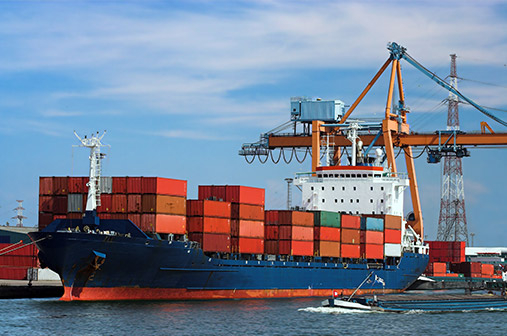Import/Export executives
Transportation

Jobs Description
Job Overview: Import/Export Executive
An Import/Export Executive manages and oversees the international trade activities of a company. This role involves coordinating the import and export of goods, ensuring compliance with regulations, and optimizing logistics to facilitate smooth cross-border transactions. Import/Export Executives are key players in industries such as manufacturing, retail, and logistics.
Key Responsibilities:
-
Regulatory Compliance: Ensure that all import and export activities comply with local, national, and international trade laws and regulations. Prepare and process required documentation, including customs declarations, invoices, and certificates of origin.
-
Shipment Coordination: Arrange and monitor the shipment of goods across international borders. Coordinate with freight forwarders, customs brokers, and transportation companies to ensure timely and cost-effective delivery.
-
Supplier & Vendor Management: Communicate with suppliers, vendors, and customers to manage orders, shipments, and deliveries. Negotiate terms and conditions, including pricing, payment terms, and delivery schedules, to optimize trade deals.
-
Customs Clearance: Work closely with customs officials to facilitate the smooth clearance of goods. Address any issues related to tariffs, duties, or restrictions, and ensure that all required permits and licenses are obtained.
-
Documentation Management: Maintain accurate records of all import and export transactions. Prepare and manage shipping documents, including bills of lading, packing lists, and letters of credit, to ensure compliance and traceability.
-
Market Research: Conduct market research to identify new opportunities for importing or exporting goods. Stay informed about global market trends, currency fluctuations, and trade agreements that could impact the business.
-
Cost Optimization: Analyze and optimize the costs associated with international shipping, including freight, duties, and insurance. Implement strategies to reduce expenses while maintaining service quality and efficiency.
-
Risk Management: Identify and mitigate risks associated with international trade, such as geopolitical instability, currency fluctuations, or supply chain disruptions. Develop contingency plans to manage potential challenges.
-
Reporting & Analysis: Generate reports on trade activities, including import/export volumes, costs, and performance metrics. Analyze data to assess the efficiency of trade operations and make informed decisions to improve processes.
-
Customer Service: Ensure that customers are informed about the status of their shipments and address any inquiries or issues promptly. Maintain strong relationships with clients to support their international trade needs.
Skills & Qualifications:
- Strong knowledge of international trade regulations and customs procedures
- Excellent communication and negotiation skills
- Proficiency in logistics and supply chain management software
- Attention to detail and strong organizational abilities
- Ability to analyze data and optimize trade operations
- Problem-solving skills and the ability to manage complex transactions
- Bachelor’s degree in International Business, Logistics, Supply Chain Management, or a related field
Career Path: An Import/Export Executive can advance to roles such as Senior Import/Export Manager, Supply Chain Manager, or International Trade Manager. With experience and additional certifications, opportunities may include specializing in areas like trade compliance, global logistics, or procurement. Import/Export Executives play a crucial role in global trade, ensuring that goods move efficiently across borders while minimizing costs and risks. Career development may also involve obtaining certifications such as Certified International Trade Professional (CITP) or Certified Global Business Professional (CGBP).
Subscribe to Our Newsletter!

